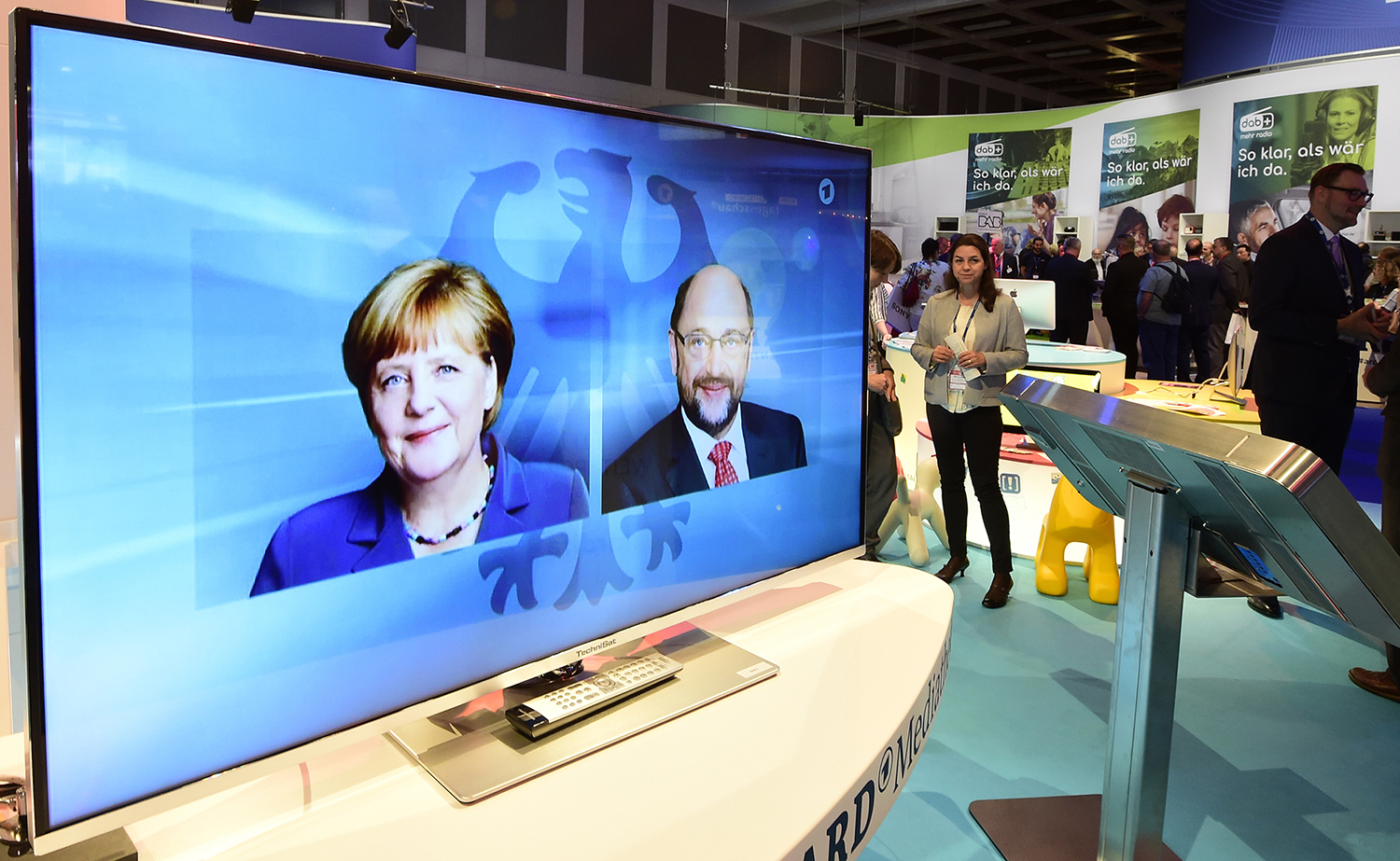Upcoming elections
The Bundestag elections will take place September 24. The election campaign is in full swing, and voters are attentively following the moves of the main candidates: Angela Merkel (CDU) and Martin Schulz (SPD). In the meantime, the ecclesial hierarchy and the dense network of Catholic associations and movements take action with reflections, debates, and initiatives for mature, responsible vote

On September 24 German citizens will go to the polls for the renewal of the Bundestag, the German Parliament. Will Chancellor Angela Merkel, undisputed leader of the Christian-Democratic Party (CDU) be reconfirmed at Germany’s leadership with a fifth mandate? Will the German people renew their confidence in her and in her politics marked by openness and challenges, but also by the capability of reconsidering her ideas while in progress, as in the case of refugee policies or as the unexpected political endorsement of same-sex marriage despite her opposing vote as a personal choice? Or will the Germans opt for the ex-President of the European Parliament, current President of the Social-Democratic Party (SPD) Martin Schulz, who presents himself as a valid alternative for international and pro-European stands, despite showing hesitancies within his Party vis a vis German domestic issues?
Programs and candidates. A wide range of issues are at the centre of the election campaign – debated also in the TV confrontation -. These include: employment, the family, the defence of human life, security and terrorism, social justice, migration, peace-building policies; and candidates are faced with a wide range of questions raised by German Catholics. With regard to the various electoral programmes, the Church and Catholic institutions have it made clear that Catholics’ position will not be neutral, while the evaluation of election results and the government coalitions that may ensue – whichever they may be – will be under close scrutiny.
Joint mobilization. All study groups of the German Bishops’ Conference (DBK) and Catholic movements have been closely following the global and social issues pertaining to the latest national political season. The bishops have addressed the global issues of peace, war, terrorism, the ongoing arms race, the role of Germany’s armed forces and arms industry on the international scenario, on several occasions. On August 1st the DBK Justice and Peace Commission released a statement in the light of the upcoming elections criticizing the German Government’s inaction with regard to the proliferation of nuclear weapons: “The German Church – pointed out Heinz-Günther Stobbe, Director of the study group ‘Just peace’ – should act to ensure that the Federal Government relinquishes its current attitude of gentle detachment from these themes. Nobody should be deluded, because those who oppose the anti-nuclear movement are powerful, determined, and very resourceful. Overcoming such resistance requires a comprehensive democratic approach. But the Church especially, must be undeterred.”
National identity and the “newcomers.” The Church gives major attention to the problem of the reception and management of migrants and asylum-seekers. The German citizens called to cast their vote – over 60 million – are also the expression of the
New multi-ethnic and multi-religious Germany
that is daily confronted with the German and Christian original matrix and with the needs of migrants, many of whom have fled from armed conflicts and starvation. One million migrants arrived in Germany since 2015, giving rise to problems of public order and to widespread fears, harnessed by populism.
Employment, social policies, women. The reflections have equally addressed the job market. The German Christian workers’ movement – KAB – called upon its members to monitor at local level the candidates’ intentions vis a vis pension policies and job creation. The same approach involves policies for women and those geared at equal pay for men and women: the two German Catholic Women’s movements, KDFD and KFD – that count some 800thousand registered members altogether – invited members to closely follow the activity of elected candidates in the area of family welfare policies and policies on women, since “every vote counts” and women make up the majority of all voters.
Protection of the family and human life. The German Church, in her evaluations upon the end of Chancellor Merkel’s fourth term in office, gives major importance to legislation on the protection of human life and for the family: while on the one side she welcomed the decision to extend end-of-life care nationwide and make assisted suicide illegal, on the other the German Church conveyed her disappointment for the adoption – also backed by Christian voters – of the law on “marriage for all”, strongly opposed by the Catholic Church.
Criteria for a responsible choice. The elections, considered crucial for the political developments not only of Germany but also of the European Union as a whole, will be held in less than two weeks.
And German Catholics intend to participate as protagonists.
On September 4 the President of the German Bishops’ Conference Cardinal Reinhard Marx, and the President of the Council of the Evangelical Church in Germany, bishop Heinrich Bedford-Strohm, released a joint appeal on the Bundestag elections. “We call upon German citizens to actively take part in the political process of our Country. The first and most important step is to develop personal, responsible knowledge of the entire electoral spectrum and exercise your voting rights.” Hence, the final choice should be based on three “criteria”: “availability to listen and respect, peaceful and non-violent political debate; openness and “assumption of responsibility for the most needy and weakest brackets”, without attempts to “disparage or exclude” on “religious, ethnic grounds” or on the basis of “skin colour or sexual orientation.” Finally, the defence of European unity must be viewed as an “invaluable asset”, to be “furthered with renewed impetus, in order to avoid nationalistic egoism.”